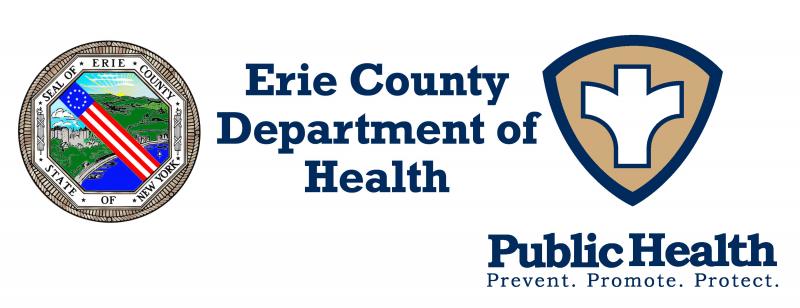Modified: October 3, 2017 8:30am
Latest News

PRESS RELEASE
From the Office of the Commissioner of Health, Dr. Gale R. Burstein
Date: September 28, 2017
CONTACT: Daniel Meyer / Daniel.Meyer@erie.gov
Phone: (716)858-8500 / Mobile: (716) 445-0305
SEXUALLY TRANSMITTED DISEASES REACH RECORD HIGHS
Rise in STDs is threatening the health of millions of Americans, including Erie County residents
ERIE COUNTY, NY— More than two million cases of chlamydia, gonorrhea and syphilis were reported in the United States in 2016, the highest number ever, according to the annual Sexually Transmitted Disease (STD) Surveillance Report released by the Centers for Disease Control and Prevention (CDC) earlier this week.
The CDC report shows:
- Syphilis rates increased by 17.6% over 2015 numbers
- Includes a 35% increase in women
- Syphilis rates are at levels not seen since 1992 and disproportionately impact Black and Latino gay men.
- Babies born with syphilis increased by 27.5%
Despite the fact STDs remain a serious public health threat, the topic is rarely discussed in home or school settings,” said Erie County Department of Health Commissioner Dr. Gale Burstein. “CDC data indicate there is a hidden STD epidemic in the United States. The CDC estimates 20 million new sexually transmitted infections occur each year, adding nearly $16 billion in direct medical costs. In Erie County we are also experiencing an increase in chlamydia and gonorrhea cases. The majority of those infections occur among adolescents and young adults. Although there has not been a congenital syphilis case diagnosed in Erie County since 2009, this continues to be a public health threat that we work aggressively to prevent.”
|
Erie County Cases |
Syphilis |
Gonorrhea |
Chlamydia |
|
2015 |
170 |
1,720 |
5,063 |
|
2016 |
134 |
1,874 |
5,201 |
Young people ages 15-24 and men who have sex with men are at highest risk for STDs and can drive new HIV infections. Young people face unique barriers to services, including stigma, confidentiality concerns, and provider resistance to sexual health discussions and testing. If STDs are not diagnosed and left untreated, females can experience infertility, ectopic pregnancies and chronic pelvic pain. Drug-resistant gonorrhea is a major public health threat, since increased resistance to the antibiotics used to treat the condition has been reported around the globe.
“If you are sexually active, be sure to talk to your healthcare provider about STD testing and which tests may be right for you” recommends Dr. Gale Burstein.
- If you are a sexually active female younger than 25, or have new or multiple sex partners, you should request annual chlamydia and gonorrhea tests. If you have never been tested for HIV, you should request an HIV test.
- If you are a pregnant, you should request syphilis, HIV, chlamydia, and hepatitis B tests early in your pregnancy. If you are younger than 25 or have new or multiple sex partners, you should also request chlamydia and gonorrhea testing early in pregnancy.
- If you are a sexually active man who has sex with other men, you should request tests for syphilis, chlamydia, gonorrhea, and HIV at least once a year. More frequent STD testing, such as every 3-6 months, is recommended for men who have multiple sex partners.
Abstaining from sex, reducing the number of sexual partners, consistently and correctly using condoms, and getting HPV and hepatitis vaccines are all effective prevention strategies.
ECDOH staffs a year-round clinic at the Jesse Nash Health Center, 608 William St., in Buffalo.
There anyone can access confidential STD screening tests learn how to prevent transmission of STDs, and access comprehensive sexual health care, including family planning.
- Comprehensive sexual health services for anyone 12 years of age and older
- Confidential STD testing and treatment
- Educational information
- No one is denied testing or treatment based on their ability to pay
For further information, contact the ECDOH STD Clinic at 716-858-7687.

